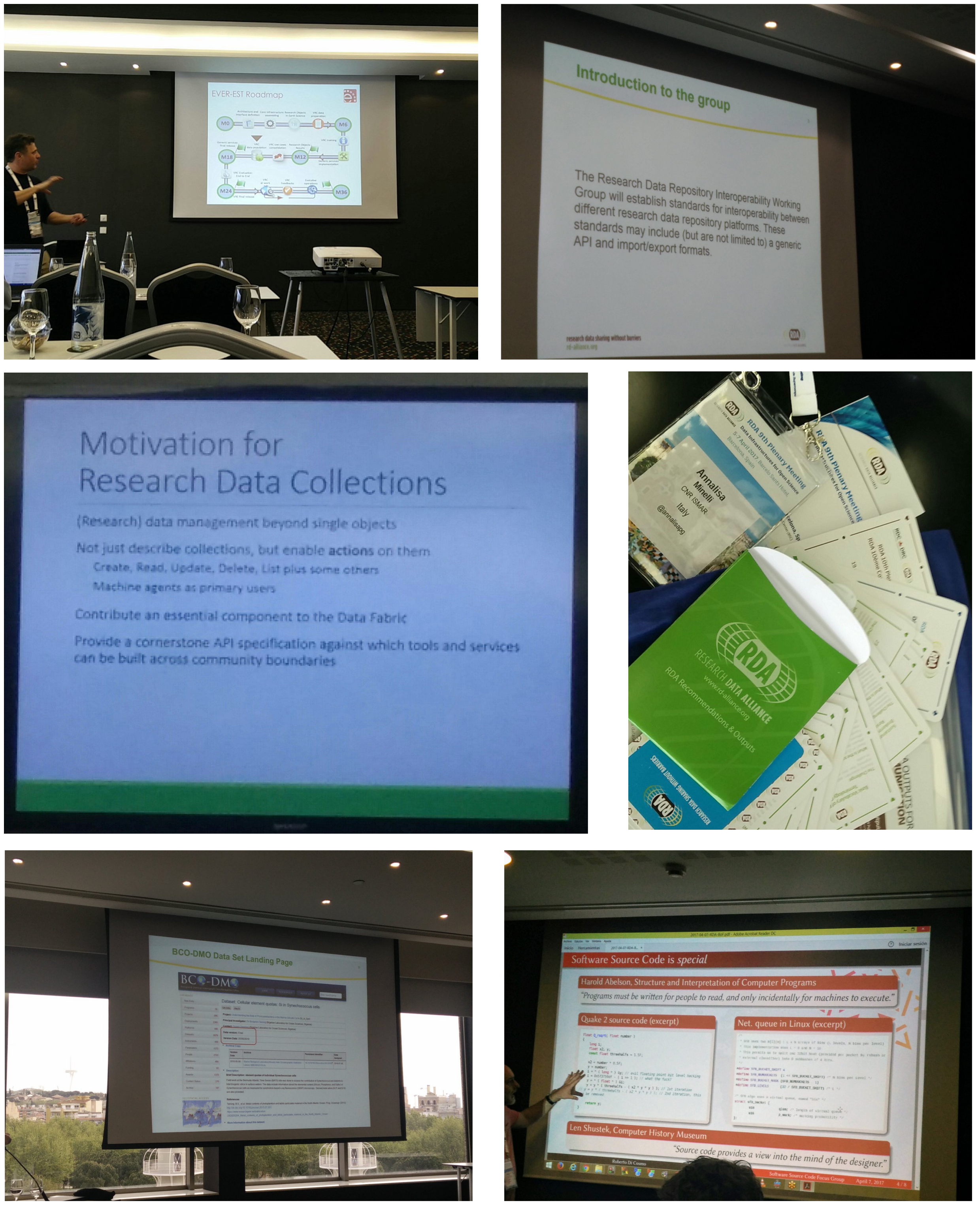The 9th RDA plenary in Barcelona
From April 4th to 7th, the 9th Plenary of Research Data Alliance took place in Barcelona (Spain) at Barcélo Saints hotel - organized by the Barcelona Supercomputing Center Fundamentals of RDA and plenaries:
- RDA focuses its efforts on the management of scientific data by means of researchers and data scientists from all over the world, it is also concerned in standardisation, preservation and sharing data. The mission of this organisation consists in building “the social and technical bridges that enable open sharing of data”.
- a plenary is usually called with the aim to meet and work together in Working Group (more practical) and Interest Group (more theorical) and exchange between groups on different themes.
- RDA is a quite young association (founded in 2013) but is composed by scientists from all over the world and a huge variety of scientific fields. All of this makes of RDA a very dynamic and challenging situation.
The 9th Plenary was about “Data infrastructures for Open Science” and counted many interesting contributions. In particular, related to our Open research project lifecycle we joined:
- the EVER-EST workshop: coordinated by the Virtual Research Environment Interest Group, this workshop presented the EVER-EST infrastructure (VRE for Earth Science). One of the virtual community on which the VRE is validated concerns marine environment and it is led by CNR-ISMAR (Bologna). It was very interesting to better undestand palatform specifications, functionalities and analysis tools. In particular the concept of research object, their composition and hierarchisation is an interesting way ot represent research elements (physical objects but processes too).
- the WG on Biosharing Registry meeting: activities of the ELIXIR inter-governmental organization was presented. Their activity on life and environmental sciences (which involves in a certain way ecology) was presented; contemporarily, BioSharing handles all the part of standardisation and interoperability of ELIXIR. The meeting was about how to implement the FAIR principles in everyday researcher’s work, concept of primary importance for our project. Their shared a sort of manual of best practices, increasingly growing, which is findable here.
- the WG on Data Citation also held an interesting breakout on how to make data citeable. This aspect is a quasi-standalone research theme since it embraces a wide range of applications and research themes. The group is quite “old” (active from more than 2 years) and they just published some guidelines on data citation - during this workshop a report showing some examples of application of there rules and an evaluation on the citation process was given. Particularly interesting for our work is the application on ocean data in the project held by BCO-DMO laboratory (from slide nr. 38). A direct involvement in the WG activities is also envisaged.
- another interesting Interest Group is the one on data versioning. The meeting saw the constitution of this group. Data versioning is primarily important for our research, since our database is dynamic and evolving (increasing) in time. This group could be interesting in the near future to our project.
- the discussion meeting organized by the WG on Data Repository Interoperability was also interesting to our project because, first of all, interoperability means standardisation for data and metadata. This specific session focused on the finalisation of a primer document on standards and technologies for repository interoperability.
- another important aspect of Open Science is Open Source: a BoF on the importance to release the Software Source Code took also place at the Plenary. This theme is fundamental for all the research projects and a first document has been written to address all the issues and arguments related or influenced by this theme. A future WG or IG is also envisaged.
Link to our poster: link
Photos of the event:
